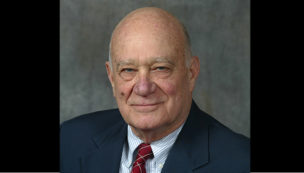It’s the October playoff season. How many American minds still turn to baseball?
Nearly 50 years ago, noted historian Bruce Catton celebrated baseball as “The Great American Game.”
Almost a century ago, humorist Ring Lardner wrote that it was foolish to expect Americans (especially males) to think about politics and elections until the “World Serious” is over.
But in our huge, populous and diverse nation change is a constant, and past generalizations face new challenges.
As I revel in the delights of playoff games, several queries occur for me, and, perhaps for others.
– To what extent are the delights of the game sufficient to deflect our thoughts from the increasingly partisan and intense politics of our time?
– Will the Italian term “desporto,” indicating a literal “being carried away” by the drama and play of games be sufficient to reduce or avoid social tension?
– Is it a good thing to have our minds deflected from politics, especially when many consider the 2018 elections the most important of our lives?
– How should we evaluate baseball as a cultural force for positivity in American society?
– Have past idealizations been wildly extreme and unrealistic? Are they out of touch with changing aspects of gender, race, ethnicity, citizenship, the “American Dream?”
– Have acclaimed writers, like Pulitzer-prize journalist, James Reston gone too far contrasting the negatives of politics with the positives of baseball?
These questions deserve several library Socratic café sessions. As I watch baseball now, I can see the passionate fan engagement across gender and age lines.
For me, the drama and aesthetics of baseball are providing a daily delight – no matter who is playing whom. I have a special reason to look for pleasure after a very recent five-hour quadruple, bypass heart surgery.
Still, the playoffs spark ongoing societal perspectives, going back to my first Yankee Stadium game in 1944 and to my annual reading of Zane Grey’s “The Shortstop” –starting at age 8.
During this 2018 season of baseball playoffs, I find a flood of memories from many games and chats with the late Stan Isaacs who lived in Roslyn Heights., for more than 50 years.
Stan was one of the giant sports writers at Newsday (from the 1960s into the 90s) when it was one of the top ten newspapers in the U.S. Stan cherished the paper’s rising young stars, John Jeansonne and George Vecsey, who extended his focus on connecting sports with our larger society.
Because we were the closest of friends, and because I developed a new course at Hofstra (responding to social trends of the 1960s) on “Sports and the American Character,” Stan often took me to sporting events with him and invited my views as a historian.
I vividly recall our Mets locker room visits in 1972-3 when Willie Mays came back to New York. I was a bit stunned to hear Willie referring to Stan as “Shorty,” no doubt because like most aspiring male athletes I aspired to be tall.
But Willie, like other athletes and journalists, had enormous appreciation for Stan’s intelligence, his skills as a writer and his quintessential sense of fairness.
It was Stan’s impact as a creative sports journalist that provides the brief transition today for “Baseball, Politics and Parades.”
Stan and I and our pals liked Reston’s celebrations of baseball over politics: baseball had a clear and enforceable set of rules, and the competitions took place in open view of everyone (unlike politics where who could know what lobbyists were compromising senators).
In baseball, your skills were immediately evident: can you hit a round ball with a round bat? Are you a shortstop who can range to your right for fielding (unlike politics, where obfuscations, delays and distractions were regular features)?
Baseball is a kind of “daily war” with clear winners and losers. How many fans transcend other differences to rally behind their team (how much common ground are we finding in today’s politics?).
Certainly, we were aware of baseball’s limits over decades (drug abuses, big money). Now, there is an improvement, with challenge and review to umpires (a version of fact-checking that could improve our politics!).
So: here are final queries for this brief discussion: 1. Is it okay for many of us (temporarily) to ignore politics and enjoy the desporto of baseball? 2. Will our team bonding (beyond political lines) when we rally as fans contribute to building better social bridges? 3. But will the passions of baseball risk deflecting us from our citizen’s duties to try to shape our politics and policies?
4.Do we also risk succumbing to Bob Dylan’s cynicism of the late 1960s when he sang: “I’m about to fade into my own parade?”
Out of Left Field: Questions raised following baseball in 2018



